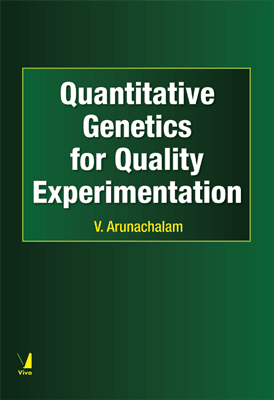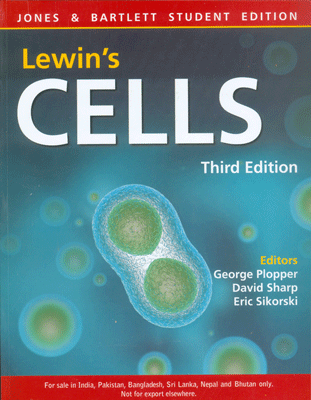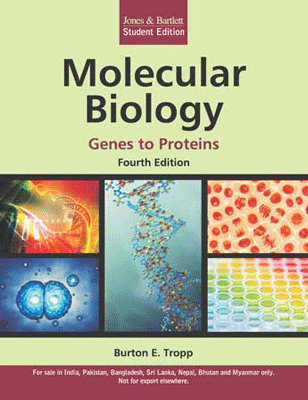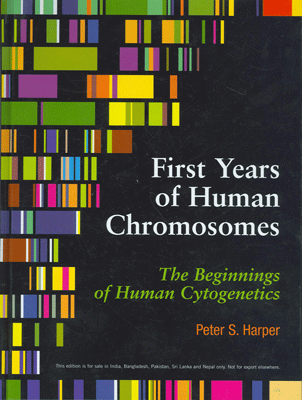Quantitative Genetics for Quality Experimentation
Quantitative Genetics for Quality Experimentation
₹1,345.50 ₹1,495.00 Save: ₹149.50 (10%)
Go to cartISBN: 9788130918020
Bind: Hardbound
Year: 2017
Pages: 332
Size: 6.75 x 9.5 Inch
Publisher: Viva Books Originals
Sales Territory: Worldwide
Description:
With an introduction explaining how contemporary developments in the fields of genetics, statistics and probability theory blended to evolve the subject of quantitative genetics, the book deliberates on how genetic theory is built on measured trait values (phenotypes) leading further to analysis of genetic variation encompassing several areas like genetic divergence, inbreeding, heterosis, mating systems, mating designs and theory of selection. Presentation of established concepts in a new light, a fresh look at QT basics with a special attention to traits governed by two genes, and a new orientation to genetic divergence and various genetic parameters in random mating and inbreeding populations are new highlights. The engaging presentation is expected to motivate even those with little mathematical/statistical background, and those professing diverse fields like agriculture, biology and biotechnology for quality experimentation.
Written by a well-known author associated with the School of Quantitative Genetics at the Indian Agricultural Research Institute, New Delhi, for more than three decades, the book is founded on the author's vast experience in inventive research, motivated teaching and guidance to graduate students. A clear and comprehensive account of vital topics in Quantitative Genetics like Distributions, Genetic Analysis of Phenotypic Variation, Genetic Values, Genetic Effects and Variances, Inbreeding and Heterosis, Genetic Divergence, Mating Systems, Selection and Populations is given in an easy-to-understand style substantiated by practical examples.
Efforts have been made to keep the book short, which augments the learning experience of the students and makes it interesting for enthusiasts. It is meant to be an essential companion to students, researchers, teachers and professionals for quality experimentation in genetics and plant breeding.
Target Audience:
This book will be useful for students, researchers, teachers and professionals for quality experimentation in genetics and plant breeding. The engaging presentation is expected to motivate even those with little mathematical/statistical background, and those professing diverse fields like agriculture, biology and biotechnology for quality experimentation.
Contents:
Preface
Chapter 1: Introduction
Chapter 2: Basics of Probability Theory? Probability • Simple and Compound Events • Addition and Multiplication Laws • Conditional Event and Multiplication Law and Theorem of Probability • Multiplication Theorem • Partitioning of Sample Space • Bayes Theorem • Use of Matrix Theory in Solving Problems in the Field of Probability • Common Mating Systems
Chapter 3: Distributions • Expectations and Moments of a Variable • Discrete and Continuous Distributions • Analysis of Variance (ANOVA) • Fixed and Random Effects Model: Major Difference • t-test and Inferences • Duncan's Multiple Range Test (DMRT) • Appendix 3.6
Chapter 4: Inference: Essential Basics • Important Concepts of Inference • Tests of Significance, Confidence Limit and Confidence Interval • Likelihood • Likelihood Ratio
Chapter 5: Quantitative Genetics: Genetic Analysis of Phenotypic Variation • Basics • QT and Genetic Values: Case of a Single Gene • Phenotypic and Genetic Variance • Alternate Formulation of Additive Genetic Variance and Interpretation of Additive Effect • Generation Means and Genetic Effects • Additive Genetic Variance and Natural Selection • Two Genes • QT Values in Two Genes • Genetic Effects and Variances in Two Genes • Various Types of Gene Interaction
Chapter 6: Inbreeding and Heterosis • Genotypic Frequencies Under Inbreeding • Li's Formulation of Inbreeding Coefficient • Additive Genetic Variance Under Inbreeding • Useful Relationships Involving Inbreeding • Heterosis • Inbreeding Depression • Breeding Value
Chapter 7: Genetic Divergence • Basics of Genetic Divergence • Numerical Example • Importance of Characters in Genetic Differentiation • Genetic Divergence and Heterosis • Implications of Genetic Divergence-Heterosis Hypothesis in Plant Breeding • Appendix 1: The process of obtaining linear combinations Y using error variance-covariance matrix in Section 7.2
Chapter 8: Mating Systems • Diallel Crosses • Covariance Between Relatives • Half-sibs and Full-sibs • Covariance of Half- and Full-sibs in the General Case • Diallel Crosses (Griffing's Approach) • Line • Tester Design • Partial Diallel Cross • Multiple Crosses • Diallel Crosses: Some General Observations • Inferences Derived from Analysis of Diallel Crosses • Covariance of Combining Ability
Chapter 9: Selection • Basics • Improvement by Selection • Annexure 9-1
Chapter 10: Populations • Types of Equilibria • Stability of Equilibria • Mean Fitness Curve and Equilibria • Synthetic and Composite Populations • Pathway to Construct Populations
Appendix 1: Elements of Matrices and Determinants, and Basics of Differentiation
Appendix 2: Permutations and Combinations
References
Index
About the Author:
V. Arunachalam joined the Biometrical Genetics unit initiated by Professor B.R. Murty at the Indian Agricultural Research Institute, New Delhi, in 1963. Together they researched on varied applications of quantitative genetic concepts for crop improvement. This work enabled Arunachalam to join for a Ph.D. at Cambridge University, England. His Ph.D. thesis is marked by novel approaches for analyzing polymorphisms with linked loci (published as a book, Chapman & Hall, 1971). On return, he became the head of the Biometrical Genetics unit. Along with his Ph.D. students, he explored intuitive and efficient approaches to improving crop productivity. He was awarded a National Chair of Eminence by ICAR. He is an ardent teacher, formulated and taught fundamental and advanced courses in Quantitative Genetics to graduate students for over three decades. His inventive methods of teaching gave a new orientation to the subject that would be visible in this book. Professor Arunachalam is an elected Fellow of all the four well known scientific academies in India.






